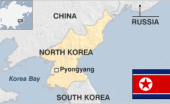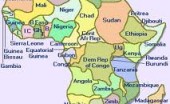Re Ian Bremmer 'Could third-party candidates upend the 2024 US election?' 3 April The current political movement in the USA…
Wednesday Night #1644
Written by Diana Thebaud Nicholson // September 4, 2013 // Wednesday Nights // Comments Off on Wednesday Night #1644
What Raoul Wallenberg Can Teach Us About Syria
During his brief stopover in Stockholm today, President Obama made a symbolic visit to the city’s Great Synagogue to pay tribute to the great Swedish hero, Raoul Wallenberg. We are pleased he did that. Also, it is important to know: Raoul Wallenberg was not a Jew. He was a Protestant, but with strong values of humanity and responsibility for his fellow humans.
In his address before the synagogue on the eve of the Jewish New Year Rosh Hashanah, Obama made a vivid point by drawing parallels between the Swedish diplomat who saved the lives of thousands of Hungarian Jews during World War II and the need for international intervention to save lives in present-day Syria. In the words of the president, Raoul Wallenberg’s actions should serve as a reminder “of our power not simply to bear witness, but also to act.”
Raoul Wallenberg might have been active in Budapest (one of the authors grew up in the very district where he was setting up his “protected” houses). Still, Wallenberg is a universal hero; his message reverberates after 70 years.
Shanah Tovah
to all our Jewish friends! May the New Year bring you health, happiness and many blessings – and to all of us, some semblance of peace.
You will be missed this week as you begin your celebrations, but will be in our thoughts.
Also in our thoughts is Michael Judson to whom we offer our condolences on the death of his father.
We continue to be consumed by daily – if not hourly – developments in the Syria, Egypt and Middle East imbroglio.
In Egypt, the government’s recently announced intention to try Mr. Morsi has brought out the protesters again, while the military court has given life sentences to 11 Brotherhood members and now the authorities have shut down the operations of the Al Jazeera Egyptian affiliate, accusing it of operating without a permit. The ongoing strife fails to solve the underlying problem of Egypt – its desperate need for economic stability. Dr. Fadhel Kaboub has published a thoughtful article in New Economic Perspectives A Financial Sovereignty Strategy for Egypt
On a less serious note (but indicative of the heightened unease of the population): With all the turmoil Egypt has endured, many people there have grown suspicious of anything foreign. Case in point: A migratory bird did time in an Egyptian jail when a citizen suspected it of being a spy. Egypt Spy Bird: Authorities Detain Migratory Bird Citizen Deemed Suspicious
The Syria story becomes more complex each day, even as the number of refugees who have fled to neighbouring countries reaches over 2 million. Coupled with the 4.5 million internally displaced this means one-third of the country’s population is affected.
Debate is particularly acute in the Canadian media over whether R2P is applicable. Irwin Cotler and Kyle Matthews have been two of the most vocal advocates of the application of R2P, the latter appearing on many media outlets and taking exception to the arguments presented in Tuesday’s National Post by Jonathan Kay: ‘Responsibility to protect’ is no basis for bombing Syria , but it is apparent that the broader population in Canada, the U.S. and Great Britain is unenthusiastic, or hostile, to the idea of any intervention.
Opinion is – not surprisingly – sharply divided over President Obama’s decision to seek congressional support for intervention. The New Yorker’s Amy Davidson approves, believing it to be his best Syria decision; others (perhaps indicating a failure to comprehend the role of an elected legislative body?) believe that it is a sign of weakness. All agree that the White House is conscious of the unhappy precedents established by previous adventures in Afghanistan and Iraq. Of all that has been written, one of the most interesting is the analysis by André Gerolymatos: Syria has returned the world to nineteenth-century warfare Russia meanwhile remains unalterably opposed to any intervention, Slate’s Joshua Keating suggesting that Mr. Putin’s stance has more to do with domestic politics and personal job security than unwavering support for Assad.
And all transpiring on the eve of the G20 Summit in St Petersburg, which, as Maclean’s so delicately puts it in the comprehensive look at what’s on and not on the agenda, “will be a rocky one”. In a departure, the foreign ministers will convene on the sidelines to talk about Syria, in an attempt to avoid having the topic dominate the Summit. Although the chatter has been about the disastrous relationship between Putin and Obama, it seems there may be other issues that will contribute to the general malaise, notably the emerging markets’ grievances about the Fed’s plans to wind down its $85-billion a month bond buying program; Washington’s concerns about Europe’s continuing attachment to austerity; and, of course, the Snowden revelations that everyone has been spying on everyone else. Maybe Putin will pull him out to give the keynote address?
With the end of the summer holidays, inevitably the political pace picks up. The mayoralty candidates in Montreal’s election campaign are issuing daily bulletins announcing candidates for their respective teams. Wednesday Nighters Helen Fotopulos and Ginette Sauvé Frankel have joined Denis Coderre’s team while Sauvé Scholar alumnus Guillaume Lavoie has opted for Richard Bergeron. Marcel Côté has been a bit slower to announce his candidates, however he recently shared some thoughts in The Gazette: Mayoral candidate Marcel Côté tackles the issues — ‘Too many layers and not enough accountability’ (we first read this as ‘too many lawyers’). One issue on which all the mayoralty candidates can agree, according to Michel C. Auger is that Montreal would bear the heaviest burden of Mme Marois’ proposed Charte des valeurs.
Daily entertainment is further guaranteed with the resumption of the Charbonneau Commission, now expanding its enquiry to focus largely on Quebec’s powerful labour unions and the role of organized crime — including biker gangs.
An indication that it is the beginning of the academic year is the flurry of coverage of education-related matters that seems greater than normal. So many views and prescriptions for curing what ails the North American education system from Kindergarten to post-graduate levels. We have collected some of the more noteworthy items on Education: demographics and trends 2013 and look forward to your comments.
For your agenda:
Carol Cumming Spiers advises that on Monday, September 16th, at 7:30pm, the Jewish Public Library is hosting what is bound to be an entertaining evening with Barbara Kay, who will be interviewed by her son Jonathan



